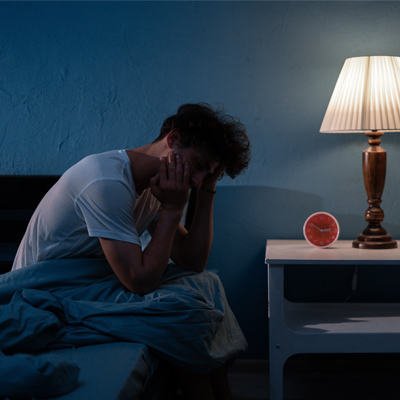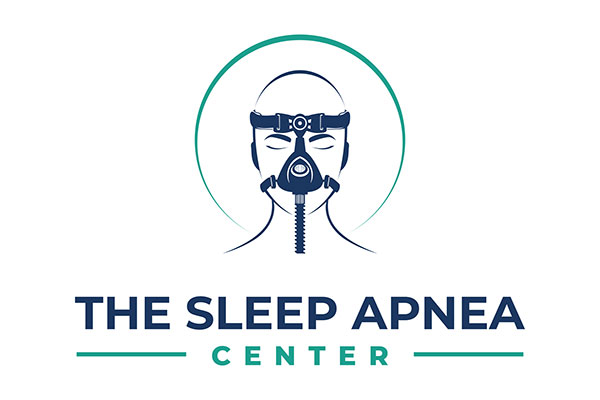Sleep DisordersRockville, MD
Sleep dentists specialize in diagnosing and treating sleep disorders that impact not only sleep quality but also overall health. These professionals provide non-invasive, dental-based solutions tailored to alleviate symptoms of common sleep disorders. Through customized treatment, patients can achieve more restful, restorative sleep and enjoy improved well-being.
Sleep disorders do not have to interfere with your life. Get a good night's rest with the help of our team at The Sleep Apnea Center. Contact our Rockville office today to learn how we can help.
What Are Sleep Disorders?
Sleep disorders are conditions that disrupt normal sleep patterns, making it difficult for patients to get the restful sleep they need. While it is common to associate sleep disorders with issues like insomnia, a sleep dentist typically focuses on disorders related to breathing problems during sleep. If left untreated, these conditions will continue to impact sleep, which can have serious health impacts. The Cleveland Clinic states that a lack of sleep can increase the risk for heart problems and disease, diabetes, Alzheimer's disease, and behavioral conditions, among others.
Here are some of the most common sleep disorders that a sleep dentist treats:
Obstructive sleep apnea (OSA)
OSA occurs when the muscles at the back of the throat relax too much during sleep, causing the airway to collapse and block airflow. These blockages can last several seconds and may occur repeatedly throughout the night. The frequent pauses in breathing lead to fragmented sleep and decreased oxygen levels, putting stress on the heart and body.
Upper airway resistance syndrome (UARS)
UARS is similar to sleep apnea but less severe. Patients with UARS experience resistance to airflow in the upper airway, which interrupts sleep without causing complete blockages like OSA. UARS often leads to frequent awakenings, daytime fatigue, and poor sleep quality. Treatment involves adjusting the position of the jaw to keep the airway open during sleep.
Chronic snoring
Chronic snoring can indicate underlying problems like sleep apnea. Snoring occurs when airflow through the mouth and nose is partially blocked, causing vibrations in the soft tissues of the throat. For patients who snore frequently, a sleep dentist will focus on improving airflow and reducing the sound and health risks associated with snoring.
"OSA occurs when the muscles at the back of the throat relax too much during sleep, causing the airway to collapse and block airflow."
Sleep Disorders: Signs and Symptoms
Recognizing the signs of a sleep disorder is the first step toward getting treatment. Some of the first signs and symptoms include excessive daytime fatigue, restless sleep, waking up with a dry or sore throat, and morning headaches. The patient may also feel irritable, depressed, and have trouble remembering things. A partner or roommate may complain of loud snoring, as well.
Note that sleep disorders can contribute to issues like teeth grinding, or bruxism, which often occurs unconsciously during sleep. Bruxism can lead to jaw pain, ear pain, worn-down teeth, and headaches, adding to the discomfort and restlessness many patients experience. Sleep dentists can address underlying sleep disorders to help reduce or even eliminate bruxism and the discomfort it brings.
"Some of the first signs and symptoms include excessive daytime fatigue, restless sleep, waking up with a dry or sore throat, and morning headaches."
Benefits of Treatment From a Sleep Dentist
Seeking professional treatment for a sleep disorder provides access to immediate and long-term benefits. Sleep dentists are trained to deliver personalized, non-invasive treatments that improve airflow and help patients achieve restorative sleep. This not only helps prevent health complications but also improves sleep quality and alleviates symptoms.
For example, sleep dentists offer oral appliance therapy for certain cases of sleep apnea. This therapy is a non-invasive alternative to traditional continuous positive airway pressure (CPAP) machines. It utilizes custom-made devices that reposition the jaw and keep the airway open, resulting in uninterrupted sleep night after night.
"Sleep dentists are trained to deliver personalized, non-invasive treatments that improve airflow and help patients achieve restorative sleep"
How Sleep Dentists Treat Sleep Disorders
Sleep dentists employ various non-invasive treatments to address sleep disorders by improving airflow and minimizing symptoms, all aimed at promoting restorative sleep. Most treatments involve custom-fitted oral appliances that reposition the jaw to keep the airway open, making them particularly effective for managing obstructive sleep apnea and chronic snoring. For patients who find CPAP therapy challenging, these appliances offer a comfortable and convenient alternative, especially for those with mild to moderate sleep apnea.
In addition, sleep dentists may recommend lifestyle changes such as limiting alcohol and smoking cessation to relieve symptoms. They can also work closely with other specialists to provide home sleep tests to monitor breathing patterns and oxygen levels from the comfort of the patient's home. This collaborative approach helps in the development of targeted treatment plans.
"Most treatments involve custom-fitted oral appliances that reposition the jaw to keep the airway open, making them particularly effective for managing obstructive sleep apnea and chronic snoring."
Follow-Up Care
Follow-up care is key to managing a sleep disorder for the long term. Through regular appointments, sleep dentists can monitor improvements, make any necessary adjustments to oral appliances, and address new or ongoing symptoms. Thus, follow-up care helps maintain treatment effectiveness and supports lasting improvements in sleep quality and overall health. Additionally, it enhances comfort, reinforces positive results, and promotes a stable, restful sleep routine.
"Thus, follow-up care helps maintain treatment effectiveness and supports lasting improvements in sleep quality and overall health."
Questions Answered on This Page
Q. What are common sleep disorders?
Q. What are the signs and symptoms of a sleep disorder?
Q. What are the benefits of sleep disorder treatment?
Improve Your Sleep With a Custom Treatment Plan
There are many ways to treat and manage sleep disorders. If you have noticed common signs and symptoms, consult our Rockville sleep dentist at The Sleep Apnea Center. Take your first step toward better sleep and contact us at 301-279-2600 today.
Frequently Asked Questions
Q. How can a sleep dentist improve sleep quality?
A. A sleep dentist can enhance sleep quality by addressing the root causes of sleep-related breathing issues. They can create custom-fitted oral appliances to help keep the airway open, reducing symptoms of sleep apnea, snoring, and jaw tension. Improved airflow during sleep helps patients achieve uninterrupted rest, leading to better energy, mood, and cognitive function.
Q. Can sleep disorders affect oral health?
A. Sleep disorders can significantly impact oral health, such as by contributing to conditions like bruxism. Further, untreated sleep apnea can cause dry mouth from mouth breathing, which increases tooth decay and gum disease risk. Therefore, sleep disorder treatment can also protect oral health.
Q. Is there a way to treat sleep apnea without a CPAP?
A. Yes, several effective alternatives to CPAP therapy exist, particularly for those with mild to moderate sleep apnea. One popular option is oral appliance therapy. Additionally, lifestyle changes, such as weight loss and avoiding alcohol before bed, can further reduce symptoms.
Q. What role does follow-up care play in sleep disorder treatment?
A. Follow-up care is essential to ensure that sleep disorder treatments remain effective and comfortable over time. It also provides an opportunity to monitor oral health and adjust treatment as needed for long-term success. With proactive follow-up care, patients can achieve stable, lasting results from treatment.
Q. How do you know if you have a sleep disorder?
A. Common signs of sleep disorders include waking up frequently throughout the night, feeling tired during the day, headaches, and mood changes. Sometimes, a partner may observe symptoms, such as loud snoring or breathing pauses. Consulting a sleep dentist can help confirm a diagnosis and determine appropriate treatment.
Definition of Sleep Apnea Terminology
- Sleep disorders.
- Conditions that disrupt normal sleep patterns, impacting sleep quality and overall health.
- Sleep dentist.
- A dental specialist trained to diagnose and treat sleep-related breathing disorders, often using non-invasive oral appliance therapy.
- Snoring.
- A common condition where airflow is partially obstructed, causing vibrations in the throat and disruptive noise during sleep.
- Upper airway resistance syndrome (UARS).
- A sleep disorder marked by resistance to airflow in the upper airway, leading to frequent awakenings and poor sleep quality.
- Bruxism.
- The grinding or clenching of teeth during sleep, which can lead to tooth wear, jaw pain, and other oral health issues.
Contact Us
The Sleep Apnea Center is located at
350 Fortune Terrace #101B
Rockville,
MD 20854

